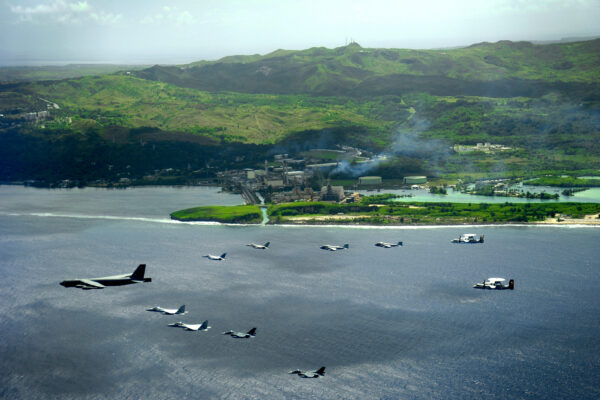
Arguments for American military action against North Korea are ill informed. The regime’s unpredictability and Chinese ambivalence should convince American leaders that it is better to wait and see than launch a war that might not remain limited in scope.
Given recent North Korean provocations, it may be tempting to consider military action and get it over with.
The communist state has raised its combat readiness to the highest level, threatened to strike American army bases in South Korea and the Pacific Ocean, suspended a military hotline with the South and urged foreigners to leave the peninsula in anticipation of nuclear war.
Whether it will make good on its threats is doubtful. The North Korean regime regularly invents crises in order to justify its survival domestically and extract concessions from the West. In recent years, it has tested ballistic missiles and nuclear weapons in defiance of international sanctions, abducted American journalists, sunk a South Korean navy ship and launched an artillery barrage against a South Korean island near the disputed maritime border between the two countries.
The West’s response has been muted. The risks of escalation have always seemed to outweigh the benefits. North Korean saber rattling is usually a nuisance at best, certainly not a direct threat to the United States.
Writing in The New York Times on Friday, Jeremi Suri, a history and public affairs professor at the University of Texas at Austin, argues otherwise. “The Korean crisis has now become a strategic threat to America’s core national interests,” he insists — without explaining what interests are actually threatened. North Korea’s missiles, after all, can’t reach the mainland United States. Japanese and South Korean air defenses should be able to protect those allies from a North Korean attack.
The best Suri can come up with is that North Korean threats might only indirectly affect American security in that it “will encourage isolated states across the world to follow suit.”
The Iranians are certainly watching. If North Korea can use its small nuclear arsenal to blackmail the region with impunity, why shouldn’t the mullahs in Tehran try to do the same?
For one thing, Iran doesn’t have nuclear weapons and it’s far from clear whether it intends to get them. If it does, it could certainly “blackmail” the United States and allies in the region, including Israel and the Arab Gulf monarchies, but only because it has proven an ability and willingness to project power. Iran sponsors Islamist terrorist organizations as well as the dictatorship of Bashar al-Assad in Syria which America and its Middle Eastern friends would like to topple.
North Korea, by contrast, has a limited record of meddling in the affairs of other states and limited means to. It hardly threatens America’s interests, let alone its “core national interests.”
The specifics of an American strike against North Korea as laid out by Suri make the wisdom of such a policy look all the more dubious. “The best option,” he believes, “is to destroy the North Korean missile on the ground before it is launched.” The administration “should explain that this is a limited defensive strike on a military target — an operation that poses no threat to civilians — and that America does not intend to bring about regime change.”
The North Koreans would be unlikely to take such reassurances at face value, however. Their propaganda already accuses the United States of seeing regime change in Pyongyang and that’s only because it flew two strategic bombers over the peninsula in a show of force.
Suri admits that the North would “certainly view the American strike as a provocation” but considers it unlikely that it will retaliate. The country’s young leader Kim Jong-un, he writes, “would see in the American strike a renewed commitment to the defense of South Korea.” What is more, China should restrain the North Koreans from retaliating.
Neither argument is convincing. Indeed, Suri recognizes in the same breath that “China’s role in a potential war on the Korean Peninsula is hard to predict.” It does not want regime change that could herald reunification and end with American troops on its border. That is why it has tolerated North Korea’s erratic behavior for so long. Mere “consultations” with China’s leaders will not change their calculations. They don’t want to be drawn into conflict with the United States but might not want, or be able, to hold the North Koreans back.
As for Kim showing caution in the event of an American military strike; he has worked hard in recent weeks to prove himself anything but cautious. Indeed, the very purpose of his belligerence may have been to prove his credentials with his country’s ancient generals. If that is so, he can ill afford to roll over and take a beating without losing prestige — if not power.
An American strike then could easily lead to war on the Korean Peninsula. The prize, removing the North Korean missile threat, isn’t worth the fight.
